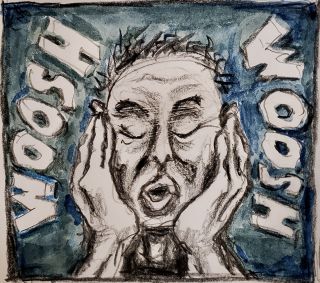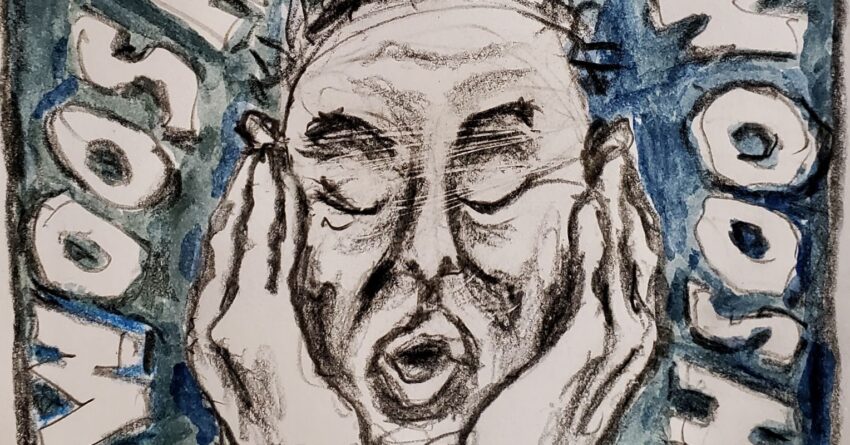
Source: Courtesy of Fumiste Studios
Tinnitus. For those who don’t have it, even the word may be hard to pronounce. For those who do, tinnitus (usually pronounced TIN-it-us) is a constant presence in every second of their waking life: a ringing, buzzing, or wooshing sound in the ears that doesn’t come from external sources. For a large number of Americans, the sound is so loud that it seriously damages their quality of life.
Specifically, a 2023 study has shown that tinnitus can lead to heightened levels of depression, anxiety, and attendant “somatization”—headaches, fatigue, and similar physical symptoms.
But there’s good news, too: A recent experimental treatment has succeeded in significantly reducing tinnitus symptoms in persons affected by severe tinnitus.
Let’s recap: Everyone has tinnitus, which is at its core the sound produced by our own acoustic and life-support systems. For most people it is so slight as to go unnoticed. Objective tinnitus—measurable by external instruments—is usually a product of the body’s circulation and is rare, affecting less than 1 percent of tinnitus sufferers. Subjective tinnitus is heard only by the patient and likely is caused by overactivity within the dorsal cochlear nucleus section of the brain stem, where acoustic and other sensory data are processed. Tinnitus in general is apt to show up and increase with age-related hearing loss.
The complaint, in whatever form, affects 25 million Americans—or almost 15 percent of the population. Of these, 5 million have chronic tinnitus, and 2 million experience the condition so severely that it becomes debilitating and life-changing.
Tinnitus is the number-one disability reported by military veterans, in particular by veterans of combat.
A German study based on analysis of data from 15,000 subjects showed a significant correlation between patients suffering from tinnitus and higher levels of depression, anxiety, and somatic disorders. The study, published in the Journal of Clinical Medicine in February 2023, found that roughly 40 percent of tinnitus sufferers exhibited these higher levels of depression and anxiety versus 27 percent of those not affected by tinnitus. Interestingly, sufferers seeking treatment for tinnitus were among the most affected.
There are no known cures for tinnitus, although therapies exist—some of which, such as the use of cannabinoids like CBD, remain unproven (although CBD might separately alleviate depressive symptoms). Other treatments cover the gamut from ear-wax removal, to white noise generators, to hearing aids, to cognitive behavioral therapy.
But there is new hope for palliation of tinnitus, if not for an outright cure. A study conducted by researchers at the University of Michigan and published in 2023 treated 99 tinnitus sufferers exhibiting physical (somatic) symptoms with therapy that combined acoustic input as well as nondetectable electrical stimulation. The results showed that, in the two groups studied, tinnitus decreased by half, on the order of around 6 decibels.
The dual treatment has not yet been approved for general use, but the researchers involved have expressed the hope that approval will be forthcoming in short order. Stay tuned.
